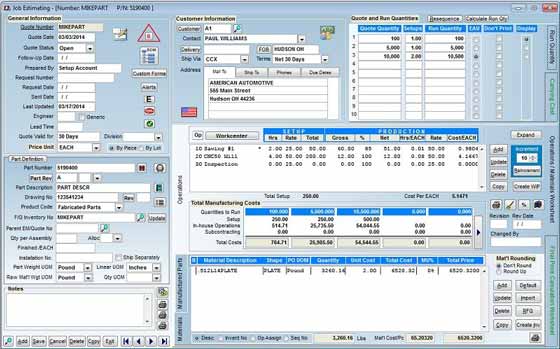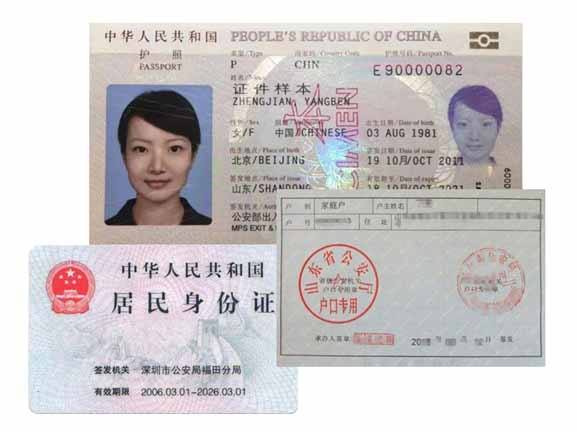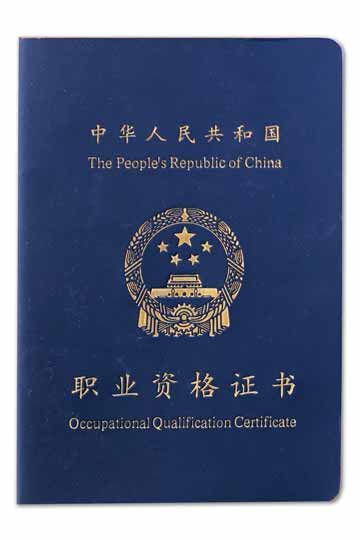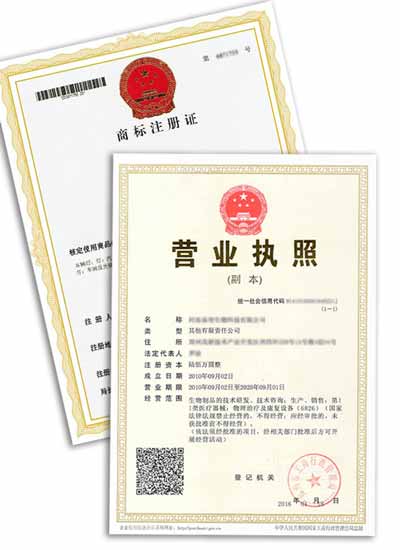文化与资讯
翻译语种
联系我们
邮箱:liwei@bowwin.com
手机:+86-18565641179
电话:+86-755-8304 2538
地址:深圳市福田区彩田路彩虹新都彩霞阁23A
翻译资讯
英汉句子翻译技巧总汇
作者:admin 发布时间:2003-04-03 11:04点击:
约定俗成(Adopting the established popular translated names)
Key words: established popular translated name, proper name, E-C translation
Abstract: It discusses the technique of adopting the established popular translated names from the perspective of proper names.
E-C
1. Bernard Shaw: 肖伯纳 (p. 48,《教你学点翻译入门知识》,世界知识出版社)
2. Conan Doyle: 柯南道尔 (同上)
3. (Thomas Henry) Huxley: 赫胥黎 (同上)
4. John King Fairbank: 费正清(美国汉学家)(同上)
5. Yue Sai Kan: 靳羽西 (同上)
6. Midway Island:中途岛(比较:Midland, 米德兰) (p. 50-51,《教你学点翻译入门知识》,世界知识出版社)
7. "Top Gun": 《壮志凌云》(不是《最好的枪》)(《当前西片译名中的问题与对策》,《中国翻译》,1997/4)
8. Cologne: 古龙(香水)(不是德国的科隆) (p.51,《教你学点翻译入门知识》,世界知识出版社)
9. First National City Bank of New York: 花旗银行
10. Marlboro: 万宝路(不是"马波罗")
名从主人(Following the pronunciation of the owners of proper names)
Key words: Standard, pronunciation, owner, proper name, E-C translation
Abstract: It discusses the technique of following the pronunciation of the owners of proper names in translating proper names.
E-C
来华历史人物人名的汉译就其构成而言主要可以分为三种类型:
汉化译名:由原文家姓首音节与(常用)个人名的汉字译写形式构成的,姓前名后,其间不使用间隔号(中圆点)。如:
1. Matteo Mattbien Ricci: 利玛窦(1552-1610,著名的来华传教士,参加翻译《几何原理》)(《谈欧美来华历史人物人命的汉译》,《中国翻译》,1989/5)
2. Timothy Richard:李提摩太 (1845-1919,英国传教士)(同上)
单成分俗成译名:原文家姓的汉译形式。
3. Agnes Smedley: 史沫特莱 (1894-1950,美国进步作家)(同上)
4. Charles Elliot: 义律 (1801-1875,英国人,鸦片战争的罪魁之一) (同上)(Cf. George Elliot, 懿律,第一次鸦片战争时的英国水师提督)(《中国近代史人名地名的翻译》,《中国翻译》,1986/2)
"协和式":
5. 由另取的汉姓与原文(常用)个人名的音译形式构成译名,如:
Johann(Johaun?)Adam Schall von Bell: 汤若望 (1591-1666,明末来华的传教士,德国天文学家)(同上)
6. 由原文家姓首音节的音译形式与另取的汉名构成的译名,如:
Julian Schumanne: 舒子章 (美国新闻工作者,《密勒氏评论报》主编)(同上)
7. 由原文个人名首音节的音译形式与另取的汉名构成的译名,如:
Mateo Ripa: 马国贤 (1682-1745,意大利传教士,康熙皇帝的宫廷画师)(同上)
8. 音译和意译兼而有之,如:
Pearl S. Buck: 赛珍珠("赛"是婚前家姓Sydenstricker首音节的音译形式,诺贝尔文学奖获得者,美国女作家)(同上)
9. Malacca Strait: 马六甲海峡
10. Hiroshima: 广岛
标准汉音(Using the standard pronunciation of the Chinese character)
Key words: standard pronunciation, Chinese character, proper name, special noun, E-C translation
Abstract: It discusses the technique of using the standard pronunciation of the Chinese character in translating proper nouns and some other special nouns.
E-C.
11. New York 纽约
12. London 伦敦
13. Canada 加拿大
14. Scotland 苏格兰
15. Mary 玛丽
16. Tom 汤姆
17. Indianans 印第安纳人
18. Indo-Chinese 印度支那人
19. Maya 马雅人
20. Greenwich格林尼治 (Cf. 曾用名:格林威治)
--- 例11-20 参照编《英语姓名译名手册》《世界地名译名手册》《世界民族译名手册》《英汉大词典》辛华、李毅夫、陆谷孙
专有名词(Translation of Proper Names)
Key words: proper name, biographical name, geographical name, E-C translation
Abstract: It discusses the technique of translating proper names.
E-C.
⑴ George Washington 乔治·华盛顿
⑵ Coca Cola 可口可乐
⑶ Mercedes-Benz 奔驰
⑷ Broadway 百老汇
⑸ San Francisco 旧金山(圣佛朗西斯科/三藩市)
⑹ Cambridge University 剑桥大学
⑺ Federal Insurance Corporation 联邦保险公司
⑻ Bethune 白求恩爱(指加拿大人Norman Bethune)
⑼ Gone With the Wind 飘
⑽ The First Blood (the name of a film) 初战告捷
-以上,郭建中编,《文化与翻译》,中国对外翻译出版公司。
重复(Repetition)
Key words: grammar, syntax, rhetoric, clarity, other cases, E-C translation
Abstract: It discusses the technique of repetition from the perspectives of grammar, syntax, rhetoric, clarity, and other cases.
一. 为了明确
(一)重复名词
1.重复英语中作宾语的名词
(1)We should learn how to analyze and solve problems.
我们应学会如何分析问题和解决问题。(《英汉互译实用教程》,修订本,郭著章,李庆生编著,武汉大学出版社)
(2)I had experienced oxygen and/or engine trouble.
我曾碰到过,不是氧气设备出故障,就是引擎出故障,或两者都出故障。(《英汉翻译教程》,张培基,喻云根,李宗杰,彭谟禹编著,上海外语教育出版社)
2.重复英语中作表语的名词
(3)He became an oil baron---all by himself.
他成了石油大王,一个白手起家的石油大王。(《英汉翻译教程》,张培基,喻云根,李宗杰,彭谟禹编著,上海外语教育出版社)
3.重复英语前置词短语前所省略的名词
英语中常重复使用前置词,而将第二个,第三个前置词前的名词省略,翻译时则往往要把此名词重复。
(4)The doctor will get more practice out of me than out of one hundred ordinary patients.
医生从我身上得到的实践会比从一百个普通病人身上得到的实践还多。(同上)
4.重复英语中作先行词的名词
英语定语从句常用关系词引导,它一方面代表定语从句所修饰的那个先行词(名词或代词),一方面在从句中担任一个成分。汉语中没有关系词,往往需要重复这个作先行词的名词。英语中的同位语,在译文中有时也可以重复先行词。
(5)The little apprentice in particular lived in terror of the boss, who had borne down on him so often and so hard that there was little left.
小学徒对老板尤其怕得要死,老板经常整他而且整得很惨,简直把他整瘪了。(同上)
(6)The President announced, with obvious relish, that the planes took off from "Shangri-la", the fictional, remote retreat in the Himalayas.
这位总统洋洋得意地宣称,这批飞机是从"香格里拉"起飞的,而"香格里拉"是一个虚构的喜马拉雅山中的世外桃源。(同上)
(二)重复动词
1.英语句子常用一个动词连接几个宾语或表语,在译文中往往要重复这个动词。
(7)Chairman Mao is an activist, a prime mover, an originator and master of strategy achieved by alternating surprise, tension and easement.
毛主席是一位活动家,是原动力,是创造者,是交替运用出其不意、紧张和松弛而取得成就的战略大师。(《英汉翻译教程》,张培基,喻云根,李宗杰,彭谟禹编著,上海外语教育出版社)
2.英语句子中动词后有前置词时,在第二次第三次往往只用前置词而省略动词,在译文中则要重复动词一代替英语中重复的前置词。若英语中连前置词也省略了,但译文中仍可以重复动词。
(8)We talked of ourselves, of our studies, of our prospects, of each other--of
everything.
我们谈到了自己,谈到了学习,谈到了前途,谈到了彼此的情况,谈到了一切。(同
上)
(9) But his wife kept dinning in his ears about his idleness, his carelessness, and the ruin he was bringing on his family.
可是他老婆不断地在他耳边唠叨个没完,说他懒惰,说他粗心,并且说他的一家人都要毁在他的身上。(同上)
(三)重复代词
1. 英语中用代词的地方,翻译时往往可按汉语的习惯重复其所替代的名词。
(10)In China, they "made mistakes", suffered by them, acknowledged and studied them, thus planned victory.
在中国,他们犯过错误,吃过错误的亏,承认错误,研究错误,从而制定了胜利的方针。(同上)
2.英语中用物主代词its, his, their, 等等以代替句中作主语的名词(有时附有修饰语)时, 翻译时往往可以不用代词而重复其作主语的名词(有时附有修饰语),以达到明确具体的目的。
(11)Happy families also had their own troubles.(同上)
幸福的家庭也有幸福家庭的苦恼。
3.英语中强势关系代词或强势关系副词如whoever, whenever, wherever等等,翻译时往往使用重复法处理。
(12)Whoever works hard will be respected.
谁工作努力,谁就会受到尊重。
4.英语用some…and others…(some…, others…)连用的句子,译成汉语时主语往往是谓语重复形式的"的"字结构,有时也可以用"有的……,有的……"句式。
(13) Some have entered college and others have gone to the countryside.
上大学的,上大学了,下乡的,下乡了。(=有的上大学了,有的下乡了。)
(四)其它英语原文没有重复,汉译时采用一种在内容上而不是在形式上的重复的手段。
(14) He wanted to send them more aid, more weapons and a few more men.
他想给他们增加些援助,增添些武器,增派些人员。(同上)
二. 为了强调
(一)英语原文中有词的重复,译成汉语有时可以保持同样的词的重复。英语对仗句的前后两部分中往往有词的重复,译成汉语时对仗句一般可以保持同样的词的重复。
(15)Dead is the monarch, dead the servant who cringed before him, dead the city in which they dwelt.
君主死了,在他面前卑躬屈膝﹑阿谀奉承的侍臣死了,他们居住的这个都城也死了。(同上)
(16)Eye for eye, tooth for tooth.
以眼还眼,以牙还牙。(同上)
(二)英语原文中有词的重复,译成汉语有时可以用同义词重复之。
(17)During their stay in Peking, they visited some old friends of theirs, visited Peking University and visited the Great Wall.
他们在北京逗留期间,拜访了几个老朋友,参观了北京大学,游览了长城。(同上)
三. 为了生动
(一)运用两个四字词组
(18)The questions were evidently unexpected to the slow-witted spokesman, who instantly found himself tongue-tied.
这些问题显然使得这位头脑迟钝的发言人感到意外,他立刻显得张口结舌,哑口无言。(同上)
(二)运用词的重叠
(19)They drove in a black limousine, past groves of birch trees and endless rows of identical new buildings.
他们驾着一辆黑色大轿车,经过一片片白桦林,穿过一排排鳞次栉比的新建筑。(《英汉翻译技巧》,章和升,王云桥编著,当代世界出版社)
(20)Once he took up his pen, writings began pouring down.
他一动笔,就洋洋洒洒,一发难收。(同上)
(三)运用四字对偶词组
(21) great contributions 丰功伟绩
gratitude 感恩戴德
grotesque 奇形怪状
careless 粗心大意
rumors 流言蜚语
(22)Whatever initial worries we had about the plane soon vanished.
不管开始时我们对这架飞机有什么不放心,这种顾虑不久就烟消云散了。(《英汉翻译教程》,张培基,喻云根,李宗杰,彭谟禹编著,上海外语教育出版社)
具体化(Specification)
Key words: specification, abstract, word, idiom, E-C translation
Abstract: It discusses the technique of specification from the perspectives of abstract words, idioms, and other expressions.
E-C
抽象名词在语义上的具体化。
(1) the top management 高层管理人员 / 部门 (陈刚)
(2) Good morning, the class! 同学们早! (同上)
(3) the best translation 最好的翻译作品 / 最佳译作 (张晓婷)
抽象名词在比喻形象上的具体化。
(4) A great and thorough-going change 巨大而彻底的变化-翻天覆地的变化
(5) They have not cut off relations completely 没有彻底断绝关系-藕断丝连
抽象名词后面加上范畴词。
(6) There had been too much violence in that region.
那个地区发生了许多暴力事件。
(7) All the people were exasperated by his fault-finding.
大家都被他那种吹毛求痴的做法激怒了。
抽象名词在语言形式上的具体化
(8) That's a business of their own, between husband and wife. Why should you get involved in it?
这是他们夫妻之间的事,你去插一脚干吗?
(9) His mind was in a turmoil these days and he was quite unable to think straight.
他这几天心里七上八下,老是宁静不下来。
(10) A real good friend should be offering timely help.
真正的好朋友应该是雪中送碳。
分清主从 (Subordination)
Key words: subordination, compound sentence, complex sentence, E-C translation
Abstract: It discusses the technique of subordination from the perspective of various kinds of sentences.
E-C.
1) Deciding the best reaction to their trick was to ignore it, I walked home. 我认为对于他们的恶作剧最好的反应就是置之不理,于是我走回了家。(复旦大学、上海交通大学主编,"21世纪大学英语读写教程"第三册,复旦大学出版社,高等教育出版社,2001)
2) I've painted too grim a portrait of today's students, making them seem too solemn. 我对当今学生的描绘过于悲观,因而使他们看上去过于严肃。(复旦大学、上海交通大学主编,"21世纪大学英语读写教程"第三册,复旦大学出版社,高等教育出版社,2001)
3) My bike seems to touch a sensitive chord in people, and I'm not quite sure what or why that is. 我的自行车似乎触动了人们一根敏感的心弦,但我不能确信那是什么,又为什么会那样。(复旦大学、上海交通大学主编?quot;21世纪大学英语读写教程"第三册,复旦大学出版社,高等教育出版社,2001)
4) At absolute zero, a pure semiconductor has all of its electrons tightly bound and acts as an insulator. 在绝对零度时,纯半导体所有电子都紧紧结合在一起,因而显示出绝缘体的性质。(严俊仁,"科技英语翻译技巧",国防工业出版社,2000)
5) The Greek name for amber is 'elektron', and this gave us our word 'electricity'. 因为希腊人叫琥珀为'elektron',所以,我们就得到了'electricity'(电)这个词。(严俊仁?quot;科技英语翻译技巧",国防工业出版社,2000)
6) It's hard work, I enjoy it though. 这工作很艰苦,可是我乐意干。(英译汉技巧新编 外文出版社 2001)毛荣贵
7) Come to the pond and I will show you how to fish through the ice. 如果你来这个池塘,我就告诉你怎样穿过冰层钓鱼。(方梦之编著,"英语汉译实践与技巧",天津科技翻译出版公司,1994)
8) Motion is infinite in variety, and the study of certain simple type of motion constitutes the science of mechanics. 尽管运动的方式多种多样,但是人们通过对某些简单运动形式的研究而创立了力学。(方梦之编著?quot;英语汉译实践与技巧",天津科技翻译出版公司,1994) (本科四年级以上)
9) The postman comes at 6:30 in the morning, at which time I am usually fast asleep. 邮递员早晨六点三十分来,这个时候我通常还睡着大觉呢。(商务印书馆,"牛津高阶英汉汉英双解词典"第四版,牛津大学出版社,1999)
10) Work hard and you will pass the examinations. 你若用功,考试就能及格。(商务印书馆,"牛津高阶英汉汉英双解词典"第四版,牛津大学出版社,1999)
- 上一篇:汉英翻译中的几点思考
- 下一篇:科技英语否定句的理解
文化与资讯
-
2022-10-26选择北京翻译公司要注意哪些问题?
-
2021-06-22陪同翻译有哪些注意事项?
-
2021-01-20爱丽丝·门罗:不是“蛮译”是“慢译”
-
2021-01-18翻译公司:只是翻译惹的祸
-
2021-01-03常用网上资源
-
2021-01-03英伦印迹:看我这样享受恬淡留学生活
翻译服务










